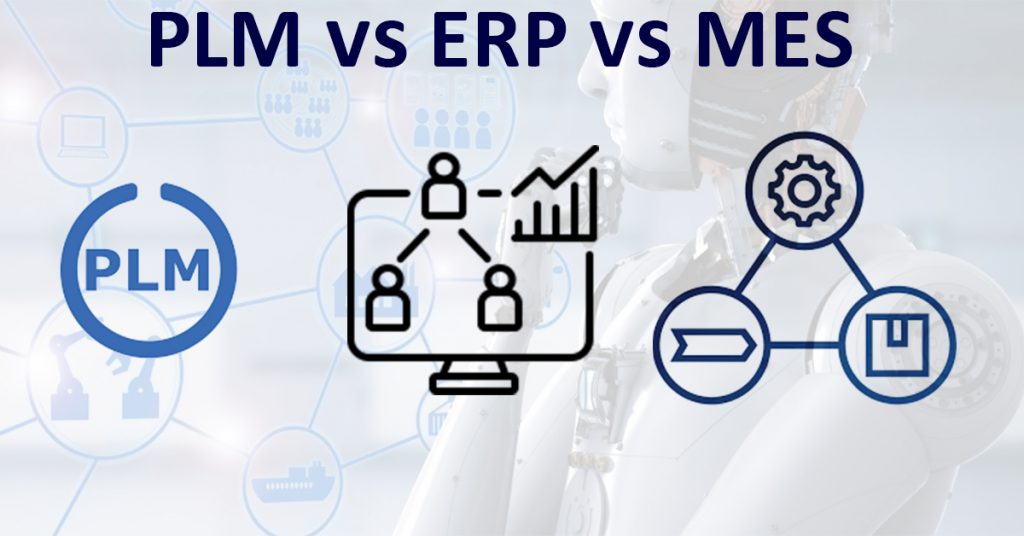PLM Vs ERP Vs MES is the normal question arises in the mind of most of the NPD team members.
Product Lifecycle Management (PLM) is all about product development – the very first stage of the manufacturing process. PLM is a building block for any manufacturing organization that designs and manufactures its own products, or manufactures to order. PLM software also provides the single point of product truth used by Enterprise Resource Planning (ERP) to manage product resources and financials.
For example, by using EBOM data from the PLM system, ERP can accurately generate purchasing and inventory management records, enabling seamless management of both resources and production.

“An ERP system is a business management tool used to fulfill the needs of many facets of a company including; finance and accounting, distribution, human resources, customer service and manufacturing.” ERP supports these various departments by delivering improved processes such as an automated 3 method for order fulfillment, providing a single location for tracking cost information to ensure consistency, and helping human resources to standardize their information
ERP = Material Requirements Planning (MRP) + Manufacturing Resource Planning (MRP II)
Enterprise Resource Planning (ERP) is the backbone of the manufacturing enterprises. MRP is utilized to arrange and also handle stock includes basic raw material, parts, bill of materials etc. MRP is manufacturing-centric besides focuses on controlling the level of materials required in the manufacturing process. MRP II allows presence throughout distributors and improves the general venture bottom-line with innovative planning, organizing, and forecasting. ERP is defined as the combination of MRP with MRP II, which ended up being extra extensive, serving the operations of a various business activities, including: sales, advertising and marketing, production monitoring along with quality control, human resource monitoring. ERP assists in making it possible for the digitization of the manufacturing business.
PLM manages the innovation and design process, while ERP ensures quality products are manufactured in a timely, cost controlled manner once a product has been engineered and approved and
A Manufacturing Execution System (MES) is an shop floor system which is defined as the lifeline of the manufacturing operations, provides manufacturers real time process monitoring of raw material through finished goods to packaging and shipment. MES provides component traceability during the entire manufacturing process, controls production quality processes in an environment of extreme volume changes, collects all test data in order to facilitate continuous improvements in quality processes, provides and enforces dynamic work flow routing for rework loops, enforces manufacturing processes and provides reverse logistics functionalities that handle return material authorization reception, hold and disposition states for a unit in repair as well supports RFID, bar-code scanning and direct integration with equipment and controls the production process to reduce defect, scrap and rework on built products.
Want to know more please write to contact@neelsmartec.com.

